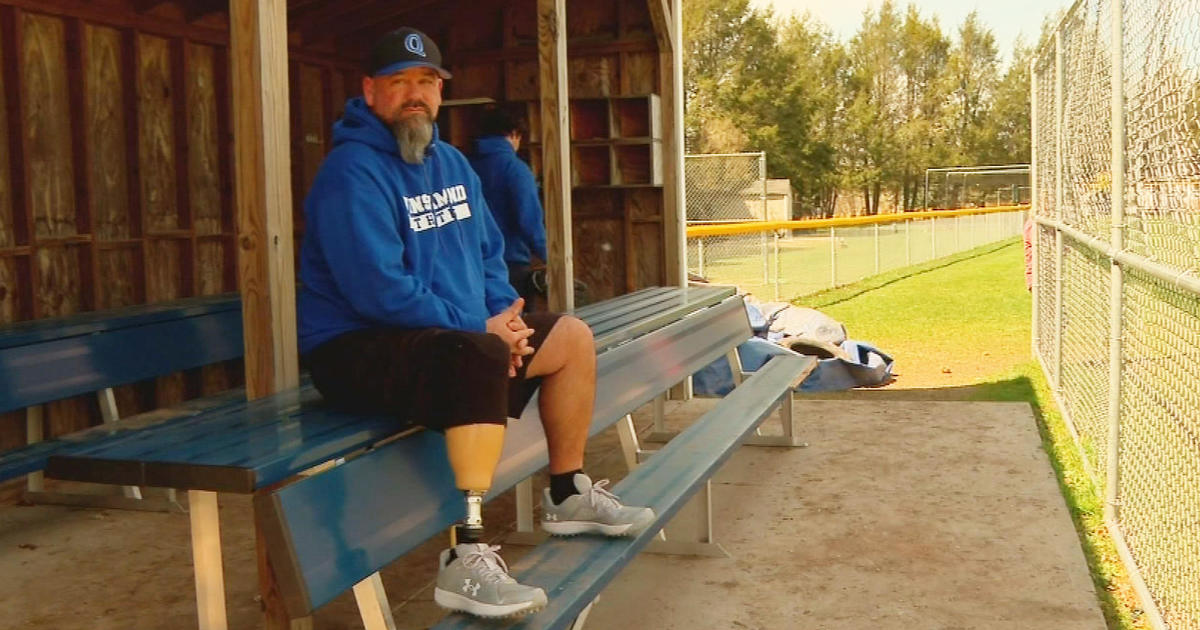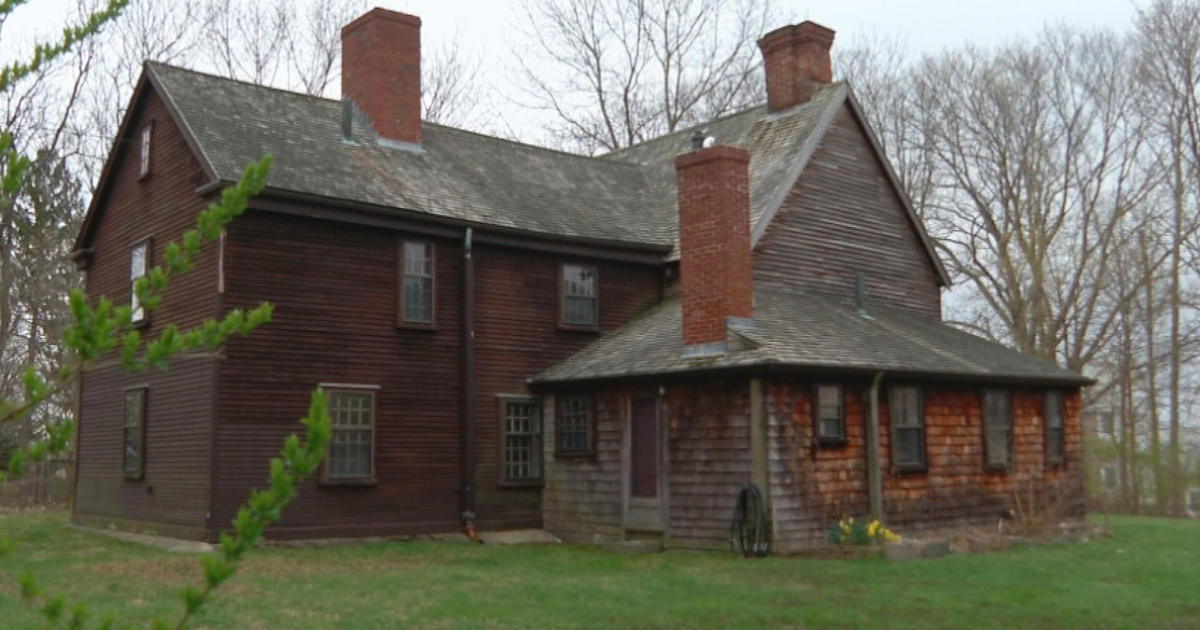Iraqi Professor Finds New Life In Worcester
WORCESTER, Mass. (AP) — Late last month, an adjunct professor of computer science at Worcester State University and Becker College announced to her classes that she wouldn't be on campus that Friday because she had to be in Boston — to take her oath of citizenship.
Nine years before that announcement, in a place where masked gunmen roamed the streets, Saba Al Khadady and her family scurried around their Baghdad home gathering up birth certificates and other important papers in a panic.
Any family documents they missed, they'd likely never see again.
Under a chilling threat from extremist militants, Al Khadady, her mother and her three younger siblings piled in the family car and drove hundreds of miles west to the Syrian border, leaving almost everything behind.
The quiet, middle-class lives they had led in Baghdad — before war and resulting sectarian violence splashed the ancient, dusty city in tears and blood — fell away behind them in the rearview mirror.
An uncertain road as refugees stretched out to the horizon ahead.
Al Khadady, then in her early 20s, had been a beginning instructor at the prestigious Baghdad technical institute from which she had earned a master's degree in computer science.
In Syria, though, her Iraqi passport would be stamped with a warning that she wasn't authorized to work legally. The family applied to the United Nations refugee agency for resettlement and fell to eking out an existence any way they could.
After weeks of barely scraping by, Al Khadady would eventually find a small workshop on the outskirts of Damascus willing to pay her under the table to assemble costume jewelry. If she was caught working, she risked deportation to Iraq, which had descended into a terrifying mayhem of ransom demands, executions, suicide bombings and reprisals.
Her dream of a career in academia seemed gone forever.
That was nine years ago.
After nearly four years living as a refugee in Syria, Al Khadady got a call that would turn her life upside down again, but this time for the better. A U.N. official told the family they had been accepted for resettlement in the United States.
They were going to a place called Worcester.
Al Khadady had always thought if they were ever accepted for refugee resettlement, they'd be sent to Sweden, where they had family. The prospect of moving instead to the United States, the home of many of the most prestigious computer science programs in the world, initially intimidated her.
"I was so scared. How would I be able to work, even with my skills?" she fretted.
But this was the family's best chance to build a new life, to have a country again. For all they knew, the Syrian authorities could deport them back to Iraq at any moment.
At the time, they couldn't have known that strife and widespread killing of the kind they had fled from in Iraq was on its way to Syria, too.
In May 2008, Al Khadady, her mother, her younger brother and two younger sisters settled into the second floor of a Belmont Hill three-decker on Patch Street. They were among the first wave of Iraqi refugees resettled in Worcester by Lutheran Social Services under a contract from the U.S. State Department.
On that first spring day in Worcester, the family that had only ever known the tan and taupe desert palette of Iraq and Syria stood around the kitchen window looking out agog at their leafy new neighborhood.
"Everywhere we went, we said, 'Oh, look at that. Look at this.' There was color everywhere," Al Khadady recalled.
Over the next five years, Lutheran Social Services would welcome more than 2,000 Iraqi refugees to Worcester under the State Department resettlement program. Other large communities of Iraqis found refuge in Michigan and Colorado.
The U.S. took in more than 73,000 Iraqi refugees in all, according to State Department figures.
The Al Khadadys and a number of the Iraqis resettled in Worcester are Mandaean, members of an ancient Christian sect that suffered systematic religious persecution from militants after Saddam Hussein's secular dictatorship fell.
Fluent in English and Arabic, Al Khadady volunteered to interpret for fellow refugees and teach literacy classes at the Lutheran Social Service's office on Union Street downtown.
The social service agency eventually hired the bright, former computer science instructor as a case worker, and she used her technical skills to create new case tracking systems that won raves from her colleagues. She was later promoted to a coordinator position.
The work was rewarding, but a part of her pined to return to academia someday. Al Khadady figured she'd need a doctorate to teach college in her new country, and she had begun to research programs when, by chance, a work appointment took her to Worcester State University.
"I fell in love with it. It was amazing. The name stayed with me after I left," Al Khadady recalled.
She visited the university's Web page intending to check for a doctoral program but clicked the employment link. Al Khadady noticed a position for a computer applications instructor that didn't require a doctorate.
She got the job and soon was teaching several classes at Worcester State. She also found work teaching computer science and programming classes at Becker College and resigned her position with Lutheran Social Services last year.
On a recent weekday morning, Al Khadady stood at the front of a classroom in Worcester State's Ghosh Science and Technology Center and methodically walked her students through some of the code Web developers use to give their sites a particular look.
With her career back on track after so many years, she and her family bought a house on a quiet street in Grafton in June 2012. Al Khadady often sits on the porch and just watches the trees and soaks up the peace.
Her younger brother got a job as a package sorter with FedEx and worked his way up to a management position. One of her younger sisters has gone back to school, and the other recently got married and had a baby.
The family's success here is not unusual among the refugees resettled in Worcester, said Jozefina Lantz, director of operations for Lutheran Social Services.
"We just give them an opportunity," Lantz said. "They make the best of it."
Her mother and sisters are active members of the Iraqi community in Central Massachusetts, but Al Khadady said that other than the occasional wedding, she has little interest in immersing herself in doings of the enclave.
She prefers to look out and forward, rather than inward and back, she said.
As a resettled refugee, Al Khadady has been on an accelerated path to citizenship, which she completed two weeks ago on Sept. 27.
"Saba recently let us know that she had taken the oath of citizenship, and we are proud to be a small part of her journey," said Elizabeth Fuller, Becker College's vice president for academic affairs. "We celebrate her personal and professional accomplishments. More importantly, Becker and its students have benefited from the association."
Al Khadady has begun looking into doctoral programs again in the hopes of eventually landing a tenured faculty position at a college or university.
She's in the process of changing her name to the slightly more western sounding Saba Kadady. When she's got all the paperwork done, she'll apply for a U.S. passport.
But the woman who left her native land under threat of violence has no desire to ever return, even for a visit. She doesn't wonder what became of her family home abandoned to encroaching militants nine years ago.
She even bristles at being called an Iraqi-American.
"Not for me. No. Not for me. I will be an American born in Iraq. That's it," she said. "I'm very happy being an American."
It seems that one nationality is enough for a woman who, for so long, had none.
Copyright 2013 The Associated Press. All rights reserved. This material may not be published, broadcast, rewritten or redistributed.



